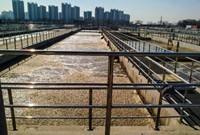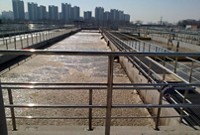Advertisement
Grab your lab coat. Let's get started
Welcome!
Welcome!
Create an account below to get 6 C&EN articles per month, receive newsletters and more - all free.
It seems this is your first time logging in online. Please enter the following information to continue.
As an ACS member you automatically get access to this site. All we need is few more details to create your reading experience.
Not you? Sign in with a different account.
Not you? Sign in with a different account.
ERROR 1
ERROR 1
ERROR 2
ERROR 2
ERROR 2
ERROR 2
ERROR 2
Password and Confirm password must match.
If you have an ACS member number, please enter it here so we can link this account to your membership. (optional)
ERROR 2
ACS values your privacy. By submitting your information, you are gaining access to C&EN and subscribing to our weekly newsletter. We use the information you provide to make your reading experience better, and we will never sell your data to third party members.
Environment
Turning Up The Heat On Antibiotic Resistant Bacteria
Wastewater Treatment: High temperatures reduce the load of antibiotic resistance genes
by Laura Cassiday
November 19, 2010

Bacteria are evolving resistance to antibiotics at an alarming rate, fueled by decades of overuse of the drugs in medicine and agriculture. Now researchers have developed a method that could slow the spread of resistance genes in the environment by reducing their release through treated sewage (Environ. Sci. Technol., DOI: 10.1021/es102765a).
When people take antibiotics, they can excrete resistant bacteria from their guts and flush them into the sewer system. The wastewater and associated solids then travel to a treatment plant. Farmers often apply treated wastewater solids, known as sewage sludge, to their fields as fertilizer. Bacteria in the sludge can share antibiotic resistance genes with other microbes in the environment. Yet according to Timothy LaPara, an environmental engineer at the University of Minnesota, Twin Cities, scientists lack a good method to remove antibiotic resistant bacteria during sewage treatment.
Most treatment plants incubate sludge in "digester" tanks at 37°C, where sewage bacteria decompose organic material and destroy pathogens, including other bacteria. Two types of digesters – aerobic digesters with added oxygen, and anaerobic without – select for different populations of bacteria.
"A lot of these digesters are operated at our body temperature, which actually is a very good condition for resistant bacteria to survive," says LaPara.
So he and colleague David Diehl examined how temperature affected the quantities of resistance genes in bacterial populations within digesters. They studied five bacterial genes encoding tetracycline resistance and one gene encoding the integrase of class I integrons, which scientists have linked to multidrug resistance. The researchers processed sludge from a nearby treatment facility in lab-scale aerobic and anaerobic digesters at four different temperatures: 22°C, 37°C, 46 °C, and 55°C.
Quantitative polymerase chain reaction revealed that in the anaerobic reactor, the amounts of antibiotic resistance genes declined with increasing temperature. LaPara presumes that higher temperatures killed resistant bacteria or caused them to lose resistance genes. The effect was most dramatic for the integrase gene: At the highest temperature, the scientists could remove 99.99% of it, LaPara says. In contrast, during aerobic digestion, higher temperatures did not substantially change the prevalence of antibiotic-resistance genes. LaPara was surprised by the aerobic digestion results and plans further study.
Raising the temperature of anaerobic digestion at wastewater treatment plants should not be cost prohibitive, he says, because the digesting bacteria produce methane gas that can heat the reactor.
"This study provides a practical approach for reducing the spread of antibiotic resistance from wastewater treatment plants," comments Amy Pruden, an environmental engineer at Virginia Polytechnic Institute and State University. She adds that she is curious to see whether the approach works with resistance genes to other antibiotics.





Join the conversation
Contact the reporter
Submit a Letter to the Editor for publication
Engage with us on Twitter